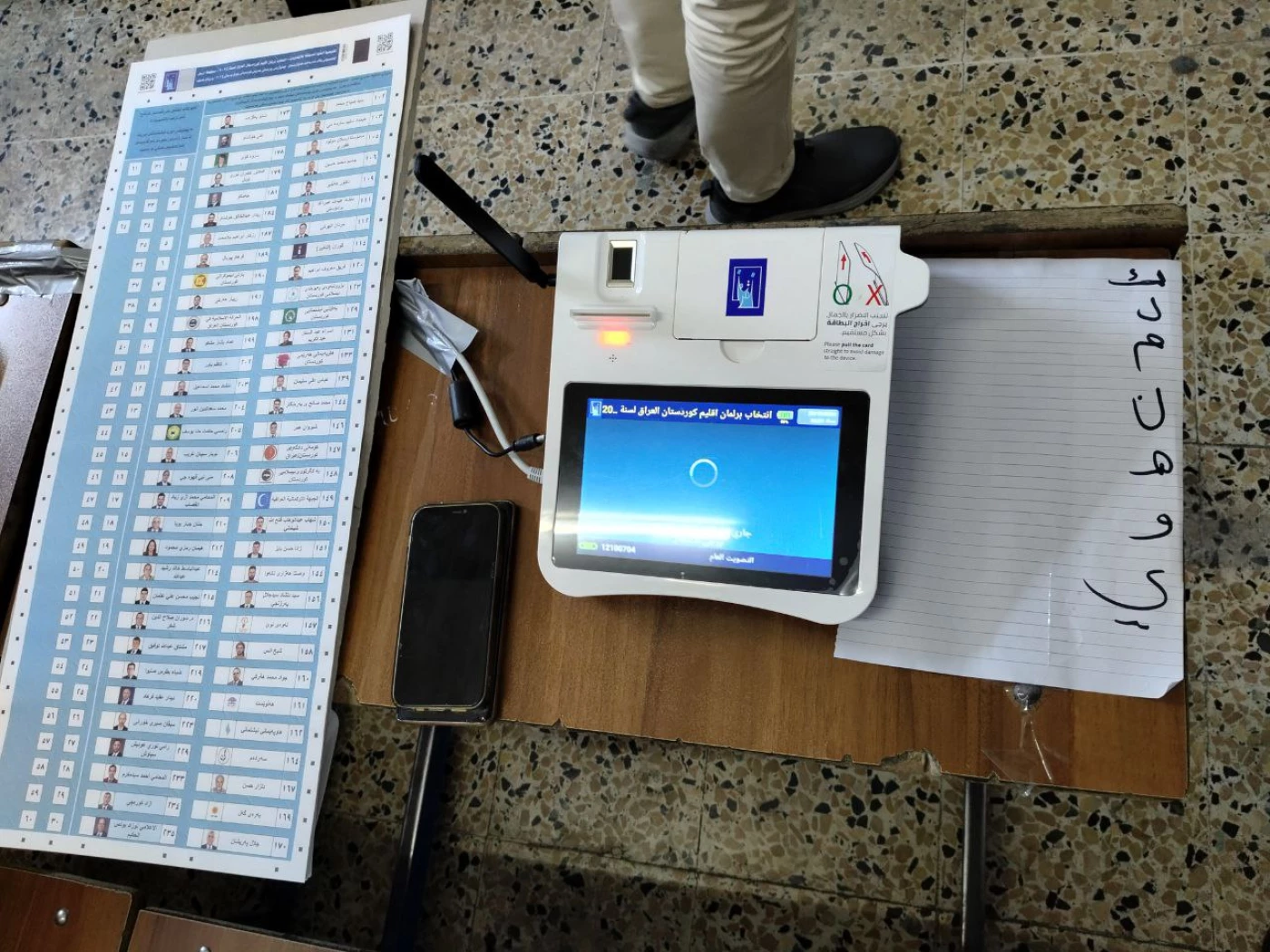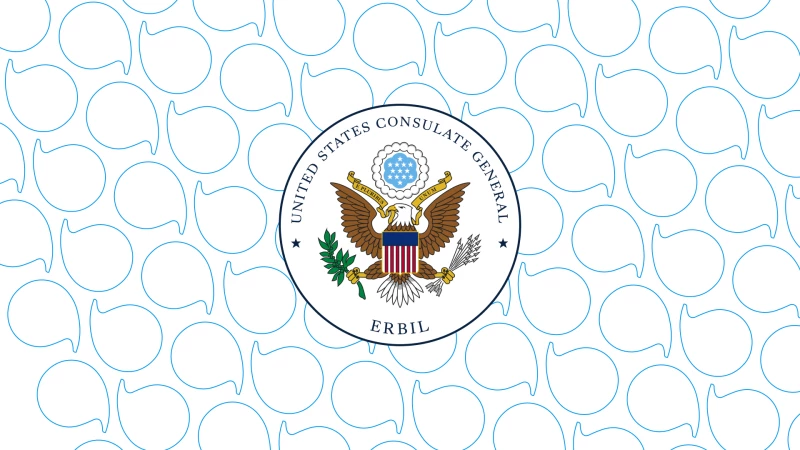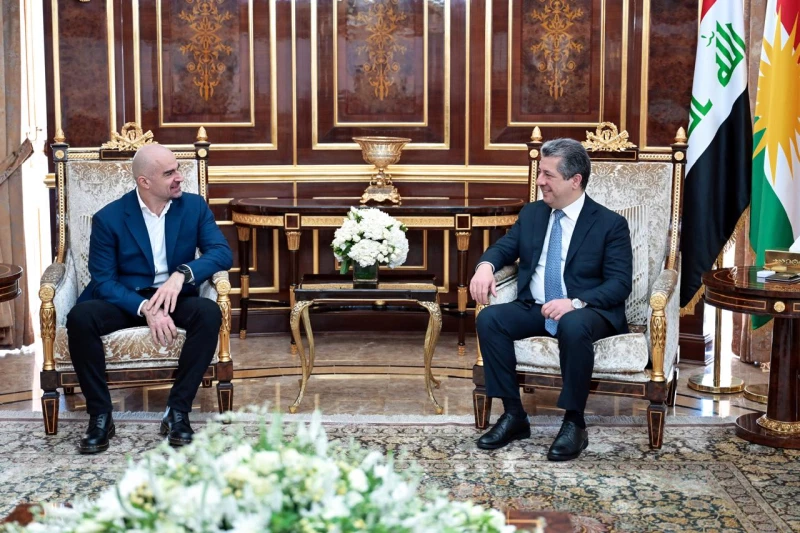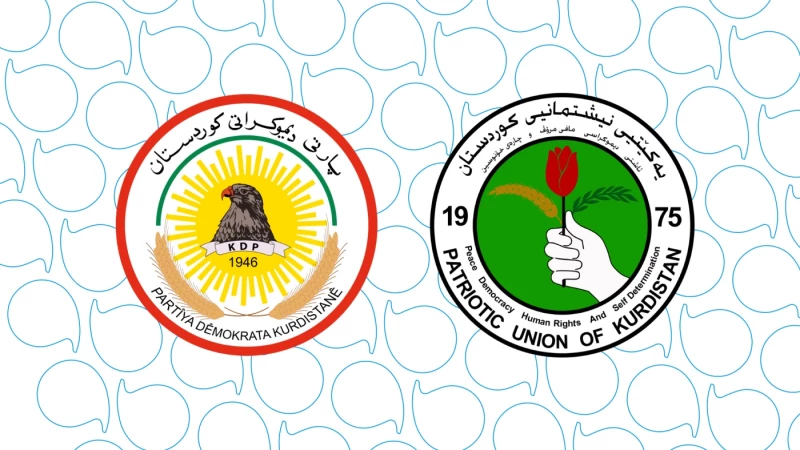ERBIL, Kurdistan Region of Iraq - The Kurdistan Justice Group (Komal), which has secured only three seats based on projections, down from the previous term’s seven, has threatened to boycott the parliament due to what they claim was “a qualitative and systematic” vote rigging in the Kurdistan Region’s parliamentary elections, an accusations that the Iraqi electoral body (IHEC) has proven unfounded.
Following the announcement of the preliminary results of the Kurdistan Region’s parliamentary elections, a number of political parties and independent candidates claimed there was electoral fraud in the process, deciding to lodge complaints against the entire process at the Iraqi federal court in Baghdad.
“The Supreme Council of the Kurdistan Justice Group announces that despite much hopes pinned on changes made to the electoral law and the supervision of the process by the Iraqi Independent High Electoral Commission (IHEC) to avoid vote rigging, unfortunately, there was electoral fraud,” Komal said in a statement on Thursday.
The Islamic party added: “Not just vote rigging was disallowed, there was even a qualitative and systematic fraud, in a way that everyone sensed it.”
The party claimed that based on their studies and follow-ups on the matter at hand, it turned out that the party’s “votes were not counted and given to other parties.”
“This vote rigging is unacceptable and we will have a serious stance,” the party said. “We will file a lawsuit at the commission [IHEC] and the federal court.”
The Islamic party said they would not join the government, nor would they even enter “an already designed parliament.”
After two years of delay and four times of rescheduling, the Kurdistan Region held its long-delayed parliamentary elections on Sunday. Of 2,683,618 eligible voters, 2,087,972 cast their ballots, a 72-percent voter turnout.
In addition to Komal, the Halwest (Stance) Movement which secured four seats based on similar objections in its first participation in the election, also claimed vote rigging was committed, vowing to challenge the results.
One of the key reasons that the aforementioned parties claimed electoral fraud had been committed was the massive amount of uncounted votes, numbering over 200,000, according to the IHEC.
The complaining parties claimed the bulk of the uncounted votes belonged to them.
The IHEC has attributed the massive number of uncounted votes to mistakes voters made including voting for more than one candidate or party, Nabar Omer, in charge of the Kurdistan Region elections board at the IHEC announced in a press conference on Thursday.
To alleviate concerns raised by these parties and sides, the IHEC will hand over voting ballots to the political parties and independent candidates, Omer said.
“These ballot papers contain everything, including counted and uncounted votes,” he said, adding this is the first time that the electoral body has done such a thing before announcing the final results.
“After the final results are announced, the political parties, coalitions, and independent candidates could once again file complaints and they could submit any reservations they may have on the process,” he said.
Iraq’s IHEC which administered the Kurdish elections, announced the preliminary results on Monday after tallying up 99.6 percent of all the voting stations.
The Kurdistan Democratic Party (KDP) emerged as the clear victor in the Kurdistan parliamentary elections, scoring over 400,000 votes more than its nearest competitor the Patriotic Union of Kurdistan (PUK).
The New Region’s projection of party seat allocations
Based on the voter turnout and official preliminary results, The New Region projects that the KDP will walk away with 39 seats after the parliamentary elections, followed by the PUK with 23, and the New Generation Movement (NGM) with 15.
The Kurdistan Islamic Union (KIU) is expected to obtain seven seats in the legislature, Halwest will have four representatives, Komal will get three spots, and two seats for the People’s Front, while the Kurdistan Region Alliance and Gorran will each get one seat.
The KDP will receive 17 seats out of the 32 non-quota seats allocated for Erbil province, followed by the PUK with six seats, and NGM with five seats. The People’s Front, the KIU, Komal, and Halwest will each receive one seat.
The PUK will score 15 seats out of the 36 non-quota allocated for Sulaimani province, followed by NGM with eight, and the KDP and KIU with three each. The remaining seats will be distributed as such: Two for Halwest, two for Komal, one for People's Front, one for Gorran, and one for Kurdistan Region Alliance.
The KDP will get 18 seats out of the 24 non-quota seats allocated for Duhok province, followed by the KIU and NGM with 2 seats each. The PUK and Halwest will each get one seat as well.



 Facebook
Facebook
 LinkedIn
LinkedIn
 Telegram
Telegram
 X
X


